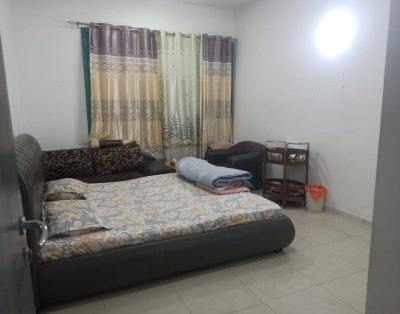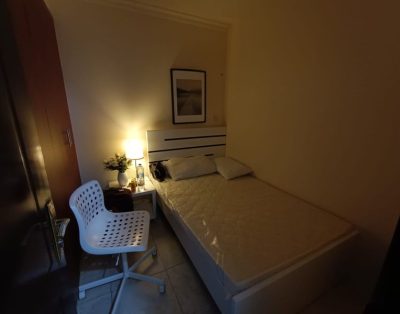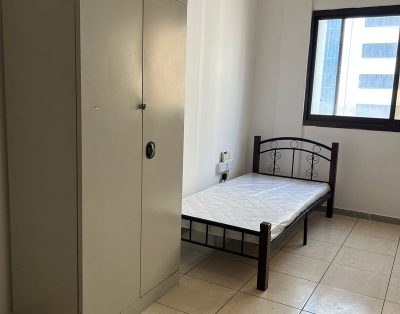The UAE has established itself as a global financial hub, attracting businesses and individuals from all over the world. Its robust banking system, favorable tax environment, and strategic location make it an ideal destination for international banking. Safe financial management, access to international banking, and investment opportunities are some of the reasons why opening a bank account in Dubai for foreigners is imperative.
Whether you are moving to Dubai for work, to set up a business, or for investment purposes, having a non-resident bank account in the UAE offers a useful entry point to the financial environment. You must have a plethora of questions regarding setting up your account in the UAE. Keep reading to discover everything you need to know about bank account openings in the UAE.
The Eligibility Criteria Of UAE Non-Resident Bank Account
Businesses and individuals must follow specific eligibility criteria to open a non-resident bank account in the UAE. While the requirements vary between banks, certain common conditions apply to almost all financial institutions.
Non-residents can obtain a range of banking services such as current investment and savings accounts by fulfilling these eligibility requirements and completing the necessary framework.
Basic Requirements For The Non-Residents
Non-residents need to fulfill certain requirements to open a bank account in the UAE.
Passport: The main document needed to confirm the account holder’s identity is a current, valid passport, which should be valid for at least six months.
Proof Of Address: Banks frequently demand documentation from non-residents attesting to their residential address in their nation or region. This can include any official correspondence with the address on it such as utility bills or bank statements.
To evaluate a non-resident’s financial history and guarantee their financial stability, many UAE banks ask for recent bank statements from their home country account usually spanning the last three to six months.
Reference Letter: Certain banks may require a reference letter from the applicant’s present bank. This letter should confirm the person’s positive standing and relationship with the banks.
Minimum Balance Requirement: In comparison to residents, non-residents are obliged to frequently keep a larger account balance in their UAE accounts. It is crucial to confirm the minimum balance before applying because different banks might have different requirements.
A Step-By-Step Process Of Opening Bank Account in Dubai For Foreigners
Here’s a detailed breakdown of your non-resident bank account opening.
Research And Select A Bank
- Investigate the different banks in the UAE that offer non-resident accounts.
- Give utmost consideration and significance to bank elements such as reputation. Seek out financial institutions that have a solid reputation for dependability and customer service.
- Compare the different types of non-resident accounts that are available, including savings accounts and investment accounts, as well as other services such as credit card options, online banking, and international transfers.
- Review the account maintenance fees and minimum balance requirements to make sure they meet your financial needs.
- For easier access take into account the branches that are closer to your residence.
Assemble The Necessary Paperwork
- Gather all the documents needed to commence the paperwork,
- Most banks need a passport with a validity of six months.
- Evidence of your home country’s address, utility bills, and bank statements.
- Letter of recommendation from the current bank
- To prevent any delays in the application process, ensure that all the documents are complete and satisfy the bank’s requirements.
Either Visit The Bank Or Apply Online
- Different banks tend to have different policies. You can either visit a branch or apply online.
- Take an appointment if needed and take all the necessary documents with you.
- Consult with a bank representative who can give you proper guidance and respond to your queries instantaneously.
- However, if you prefer to apply for a non-resident bank account online, you need to visit the bank’s website and locate the section for non-resident accounts. Follow the instructions provided for online candidates and submit the requirements accordingly.
Submit the Application And Complete the Verification
- Once the application has been submitted either online or in person, submit it with all the necessary paperwork.
- After reviewing your application, the bank will carry out a verification procedure that could include verifying your documents and identity, evaluating your financial history, confirming your reference letter, and reviewing your bank statements.
Wait For The Approval And Activation Of Your Account
- Depending on the bank, processing your application could take a few days to a few weeks after it is submitted.
- Throughout this period maintain communication with the bank to find out how your application is progressing.
- After the approval, you will receive your UAE non-resident bank account number and online banking login credentials.
- Follow any further instructions needed to activate your account such as connecting any required services or establishing online banking.
Popular Banks Offering Non-Resident Accounts
Here is a comparison of the HSBC Dubai non-resident account, Emirates NBD non-resident account, and Mashreq non-resident bank account.
| Bank | Type Of Account | Minimum Balance | Annual Fee | Interest Rate | Key Services | Benefits |
| Emirates NBD | Non-Resident, Savings Account | AED 5,000 | AED 0 (if maintained) | Up to 0.25% | Online banking, international transfers | 24/7 customer support, debit card, mobile banking |
| HSBC | Non-Resident, Current Account | AED 25,000 | AED 600 | Up to 0.10% | Global banking, online banking | International money transfers, multi-currency accounts |
| Mashreq | Non-Resident, Savings Account | AED 3,000 | AED 0 (if maintained) | Up to 0.75% | Online banking, bill payments | High interest rates, no withdrawal limits, flexible terms |
Notes:
The rate of interest might vary based on account balance and various market conditions.
The amount of fees differs according to the type of account and utilization of services.
Challenges And Considerations Of Opening Bank Account in Dubai for Foreigners
- In comparison to resident accounts, non-resident accounts frequently have less access to financial services and products,
- A number of banks impose higher maintenance and transaction fees on non-resident accounts.
- When making international transfers or exchanging currencies, non-residents may be charged extra.
- Non-residents may have to go through a more involved and drawn-out documentation and verification process.
- Without UAE residency, they might face trouble obtaining credit cards or loans
- If the bank does not offer services in your preferred language, communication difficulties might occur.
- Non-residents are subject to different regulations some of which may not be the same as those that apply to residents
Wrapping Up
A non-resident bank account in Dubai is easy to open and can greatly improve your financial management while you are living abroad. By following the instructions, you can streamline your living experience and gain access to a variety of banking services. These include searching banks, obtaining the required paperwork, and filling out the application. A local bank account can help facilitate transactions and ease the transition to living in the United Arab Emirates.
Whether you’re looking for a place to manage your finances efficiently or are thinking about getting a partition for rent in Dubai, Free Room has you covered.
Frequently Asked Questions
-
What does a non-resident bank account in UAE mean?
People who live abroad and want to handle their money locally can open a non-resident bank account in the United Arab Emirates. In order to facilitate international transactions, access local services, and take advantage of the UAE’s financial system, foreigners can open a non-resident bank account in Dubai.
-
What needs to be done to open a non-resident account with Emirates NBD?
Those who wish to open an Emirates NBD non-resident account must fulfill certain requirements, such as presenting a valid passport, proof of address in their nation of residence, and occasionally a letter of recommendation from an existing bank. The Emirates NBD non-resident account minimum balance requirement should also be met to prevent any fees.
-
What is the difference between the Mashreq non-resident bank account and the HSBC Dubai non-resident account?
Both have unique features and advantages. Mashreq might provide lower minimum balance requirements and competitive interest rates, but HSBC typically offers a greater range of international banking services and investment options.




















